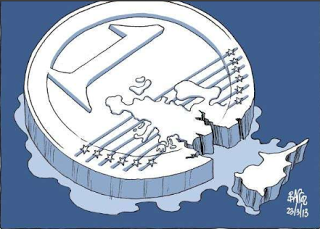“Punting the Pundits” is an Open Thread. It is a selection of editorials and opinions from around the news medium and the internet blogs. The intent is to provide a forum for your reactions and opinions, not just to the opinions presented, but to what ever you find important.
Thanks to ek hornbeck, click on the link and you can access all the past “Punting the Pundits”.
Follow us on Twitter @StarsHollowGzt
Dean Baker: Senate Unanimously Votes Against Cuts to Social Security, Media Don’t Notice
There are few areas where the corruption of the national media is more apparent than in its treatment of Social Security. Most of the elite media have made it clear in both their opinion and news pages that they want to see benefits cut. In keeping with this position they highlight the views of political figures who push cuts to the program, treating them as responsible, while those who oppose cuts are ignored or mocked.
This pattern of coverage was clearly on display last weekend. Both the New York Times and Washington Post decided to ignore the Senate’s passage by voice vote of the Sanders Amendment. This was an amendment to the budget put forward by Vermont Senator Bernie Sanders that puts the Senate on record as opposing the switch to the chained CPI as the basis for the annual Social Security cost-of-living adjustment (COLA).
RobertReich: The Morality Brigade
We’re still legislating and regulating private morality, while at the same time ignoring the much larger crisis of public morality in America. [..]
The morality brigade worries about fetuses, but not what happens to children after they’re born. They and other conservatives have been cutting funding for child nutrition, healthcare for infants and their mothers, and schools.
The new House Republican budget gets a big chunk of its savings from programs designed to help poor kids. The budget sequester already in effect takes aim at programs like Head Start, designed to improve the life chances of poor kids.
Meanwhile, the morality brigade continues to battle same-sex marriage.
Can 147 people perpetuate economic injustice – and make it even worse? Can they subvert the workings of democracy, both abroad and here in the United States? Can 147 people hijack the global economy, plunder the environment, build a world for themselves that serves the few and deprives the many?
There must be some explanation for last week’s economic madness. Take a look: [..]
And when the next crisis comes, “147 people” will react to it exactly the same way they reacted to the last one. You can almost hear them now, can’t you? You can’t blame us, they’ll say.Nobody could’ve seen this coming. How do we know that?
Because we asked everybody we know.
Daniel Wagner and Alexis Giannoulis: The Cyprus Deal Signals a Rise in the Far Right in Europe
News of the 10-billion-euro bailout for Cyprus should not be cause for celebration. An ambiguous plan has been put forward to restructure the country’s banking system and the effective expropriation of depositor funds will continue. Yet global stock markets have, as usual, risen on the news that the ECB has once again bailed out a bankrupt country from within its ranks. So the well-worn mold that has been created by the ECB and global markets continues. Europeans are rightly insecure about what comes next, as they should be given the precedent that has been set, and psychological ‘stress fractures’ are becoming even more pronounced throughout Europe. [..]
In all likelihood, the net result of the latest chapter in the European saga is that average Europeans will have less confidence in their collective future and governments. The Cyprus deal only serves to underscore how fragile Europe remains and how vulnerable it is to reverting to nationalism and the far right political movements that go along with it. That is hardly cause for celebration. On the contrary, the continuation of ‘business as usual’ should be ringing the alarm bells. Loudly.
Paul Buccheit: America Split in Two: Five Ugly Extremes of Inequality
The first step is to learn the facts, and then to get angry and to ask ourselves, as progressives and caring human beings, what we can do about the relentless transfer of wealth to a small group of well-positioned Americans. [..]
What to do?
End the capital gains giveaway, which benefits the wealthy almost exclusively.
Institute a Financial Speculation Tax, both to raise needed funds from a currently untaxed subsidy on stock purchases, and to reduce the risk of the irresponsible trading that nearly brought down the economy.
Perhaps above all, we progressives have to choose one strategy and pursue it in a cohesive, unrelenting attack on greed. Only this will heal the ugly gash of inequality that has split our country in two.
Wendell Potter: Don’t Let State Lawmakers Game Obamacare to Benefit the Few
We’re just a bit more than six months away from when Americans will have to begin making decisions about purchasing health insurance, but, according to a survey released last week, more than two-thirds of people who are currently uninsured don’t have much of a clue how Obamacare will affect them, including the fact that coverage will soon be mandatory. [..]
Making sure Americans become aware of that mandate and sign up for coverage before the end of the year will be an enormous undertaking, which is why Obamacare also includes a provision authorizing a broad range of organizations to serve as “navigators” to educate people about the law’s requirements and help them find plans that meet their needs. [..]
As you can imagine, agents and brokers are not happy that all those other organizations will be able to help folks “navigate” the health insurance world. And so they are trying to get laws passed at the state level that for all practical purposes would make it difficult, time-consuming and expensive for any of those other groups to qualify as navigators.

 As the
As the
Recent Comments